
by Ajay Oberoi | Consumer Proposal, Credit Counseling, Credit Repair
Wouldn’t it be good if all debt would just disappear? Debt can be so stressful, particularly if you’re trying to pay down your debt on a very small budget. When you do not have enough extra money, making debt payments could seem like a waste of savings, or even seem too impossible. Further, it’s also easy to get irritated when you have a big amount of debt and much of your payments go towards the interest.
Yet, you’re almost better off making even a small payment, instead of no payment at all. If you do not have any emergency fund or you’re barely scraping by and can’t even pay your existing bills, then you might need to concentrate on those concerns now. However, if you have any funds available, you must be paying off the debt. The following are ways on how to get out of debt with small payments.
SET UP AUTOMATIC DEDUCTIONS
If you got limited budgets, you might feel that small payments aren’t worth it. But, every small bit helps. Did you know that setting up an automatic deduction would stop you from falling into the trap of looking for diverse excuses not to make debt payments? Normally, automatic deductions are an excellent way to pay bills.
CREATE PAYMENT PLANS
If you like to get out of debt easily, especially with a limited budget, you need a plan. Begin by identifying how much debt you have and listing down the lenders whom you own money to. You can order your payments by which debt you believe needs to be paid off first. Then, you can identify how much you can avail to pay off every month.
Once you’ve identified how much you can pay every month, you need to determine how much of that total number will go to every loan. Paying off the high-interest loan in its entirety has lots of benefits; however, if you have a loan, which does not need payments yet, you must factor that in and perhaps pay off other loans first as well.
CHANGE SPENDING HABITS
Someway you got into debt, and there are some potential reasons. You might have debt like school loans, home mortgage and such debts are totally legitimate and necessary. Either way, you need to decide to stop spending today if you like to get out of debt faster. This denotes that even when a mortgage is a reasonable debt, you need to be proactive when it comes to paying off that certain debt and you need to be content not to go out or buy a bigger or costlier home. Regardless of whether you’re an impulse sender or careful spender, if you wish to be debt-free, then you need to select to pay the debt down rather than accruing more.
People oftentimes wonder when they must borrow money to pay off debt. If you have countless different debts, then you can consider consolidating the loans. Remember, having a limited budget should not stop you from paying off the debt you have; however if it can make it certainly tougher. These tips can help.
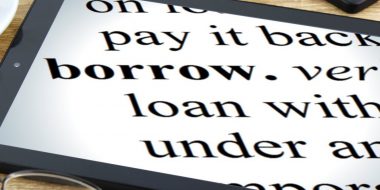
by Ajay Oberoi | Bankruptcy, Consumer Proposal, Credit Counseling, Credit Repair
Canadian homeowners have more negotiating skills than they think when we talk about the Canada Revenue Agency. That’s until the CRA has placed your property and placed a lien on it. Utilizing your home to deal with CRA all comes down to the right timing. If you have some equity in your home and you the CRA money, here are the steps to take.
Everyone knows that tax debt could be alarming; alarming because owing to the CRA money if you cannot pay will likely result in collection activities. Further, tax debt is one of the major reasons why people get behind filing as the money to pay isn’t there and they fear that once the returns are filed, CRA is going to come searching for the money. If you are aware that you have a tax debt, do not wait until the CRA catches up with you. Remember that you can beat them and get a plan, which will effectively deal with your CRA tax debt.
What Are the Options?
In case you didn’t know yet, you more options to deal with CRA tax debt when it has not started enforcement action. A good example of this is homeowners who have tax debt. Let’s say you have or you own a home, have a tax debt, at the same time the CRA puts a lien on the home, this will greatly lessen your options if you really can’t repay them on a monthly basis given that the CRA will become a secured creditor.
The challenge here is your probabilities of being able to make the consumer proposal are extremely lessened once the CRA has taken enforcement action, secured with a lien on your home for instance. The same goes for bankruptcy. If you’re holding the bankruptcy card in your pocket or hoping that filing for bankruptcy may seem like a means to get out of the tax debt, this as well would no longer be a viable option when the CRA becomes secured on the asset such as real estate.
The Faster You Deal with CRA Tax Debt, the Better
Don’t mind problems like financial planning and enforcement action. The presence of tax debt and the CRA collection action against you can lead to damage to your relationship with your family or along with lenders like your mortgage holder or bank, embarrassment at work, and even health issues if you become stressed and have some difficulty coping with the stress.
There’s no need to put yourself through this kind of situation. You will find companies, which can help you with your financial CAR tax debt problem. Selecting the right solution for you could be easier said than done; however, but not if you are aware of your options. Collaborating with a financial consultant employed by you to represent your interest is one great way to assess and check your options and develop your plan.
Remember, dealing with your tax debt before CRA catches up with you will allow you to have relief and move forward on a new footing. Any problem with CRA debt call GTA CREDIT at 416 650 1100
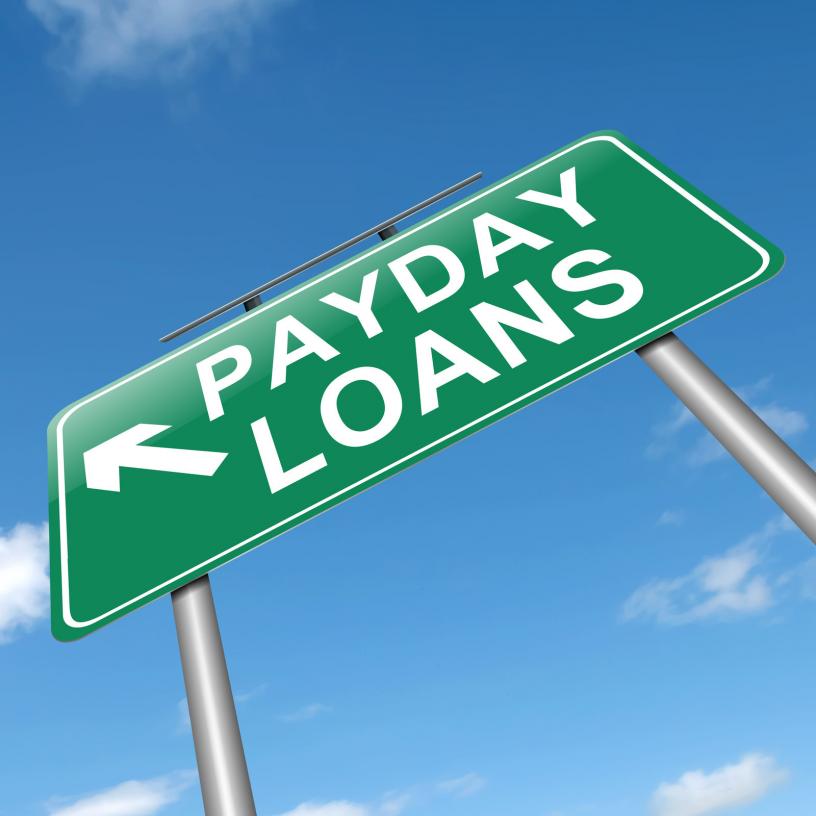
by admin | Consumer Proposal, Credit Counseling, Credit Repair
Let’s face it – money can be a devil at times and a savior at others. We all are told to acknowledge the importance of adequate money management throughout our lives to avoid the problems a lack of finance brings. That’s very crucial, without a doubt. However, some people might face a time they are in dire need of money, despite the sufficient money management they thought they were conducting.
There are plenty of loans available in the market to help you take care of your financial needs. However, almost all of them only allow borrowing a large amount and also have high-interest rates. What about when you need only a little amount of money? Well, that’s where payday loans come in.
A payday loan is basically a small loan that is short-term. You can acquire a payday loan to pay your urgent bills or whatever, and then you will be required to pay back the money. The name ‘payday’ is to suggest that you are supposed to return the money as soon as you get the paycheck on your next payday.
The payday loan industry has seen significant growth in recent years, but it has also received some serious criticism for various reasons. Nevertheless, payday loans are becoming more popular and they have their pros and cons. Let’s take a look at them.
Pros
Payday loans can be really useful.
When you need urgent financial assistance, you may find payday loans as the most suitable option. You can use the amount from payday loans to pay for due bills or any other expenditure that needs to be incurred urgently. You can return that small amount soon enough with your next salary. No matter how good you are at money management, some unforeseen circumstances in life may leave you with no other choice.
They are very easy to get.
The popularity of payday loans also has to do with their convenience. Almost anyone with a steady income, state ID, and a checking account can qualify for payday loans. You can expect to receive the amount within an hour or few hours of application and that can be considered as a huge plus. Some online companies also offer payday loans.
Even people with poor credit scores can get payday loans.
All the conventional loans require you to have a good credit score. That’s one thing that restricts people in times of an urgent need when their money management turns out not so effective. With payday loans, that’s not a problem as the lenders do not generally check the credit score of the applicant.
Cons
The terms of payday loans favor lenders.
Anyone who fails to comprehend the terms and agreement of payday loans can find themselves at a major disadvantage if something goes wrong and they are not able to pay back in time.
People often fail to meet the repayment terms.
The APR (Annual Percentage Rate) of interest on credit card loans is usually under 20 percent. In the case of payday loans, the interest averages to 300 percent when evaluated as APR. This means that payday loans are not a long-term solution and you must strictly avoid borrowing a bigger amount than what is absolutely needed.
It all comes down to personal preference. People who are confident of their money management and can easily meet the repayment terms can benefit from payday loans. Otherwise, other options should be explored.
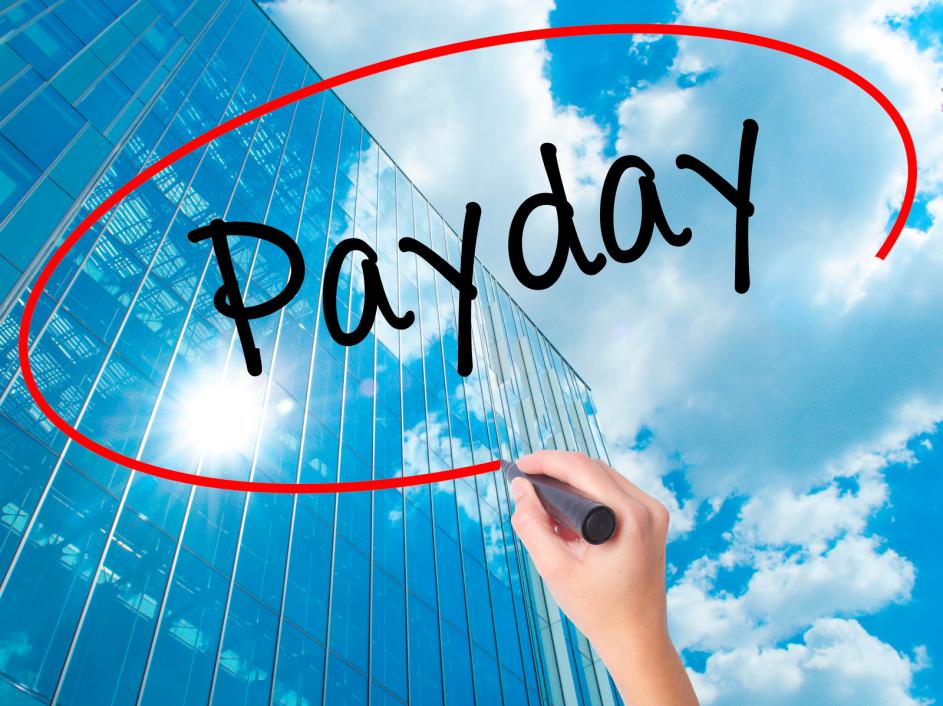
by Ajay Oberoi | Bankruptcy, Consumer Proposal, Credit Counseling, Credit Repair

We all know that payday loans are meant to help us cover all of the unexpected and sudden costs. While they are readily available loans, the main concern for many people is to get rid of this liability in a best possible manner. However, not many people are able to repay the loan. Besides, they end up fixing debt problems and creating more difficulties for themselves than the actual benefit sought out of it.
The basics of a payday loan
Not many of us fully realize the importance of returning such payday loans in time. That is because not all of us do the required planning for repayment of the loan before we actually take a loan. For you to plan a payday loan you must be aware of the basic terms of it as follows;
- A person can cancel a payday loan two days after signing an agreement
- You must return the complete amount of loan except for the borrowing cost
- A person is not required to pay any money unless the loan comes due
- A person may repay the loan before the due date without paying any excess charges to the lender
Once you know these above-mentioned basics (and others), only then you will be able to plan a loan in a way that would not leave you worse off in the end or creating more debt problems for you than proving to be any good. Hence, you must always deal with a payday loan with some sound strategy.
Dealing with a payday loan
There are several strategies to deal with a payday loan and get out of this vicious cycle, however, whichever strategy you choose to apply totally depends on your current financial situation. Let us have a look at some of the steps that might help you in getting rid of the payday loan.
- Don’t Panic – While payday loans are advertised to settle uncertain expenses, the majority of people use it for essentials like food or petrol. Therefore, stop panicking as you are not alone in this. Also, this would allow you to use other credit options wisely
- Stop borrowing more – Usually, people make the mistake of borrowing more loans in the hope of repaying the previous one. This cycle, however, needs to be stopped to avoid falling deep into the debts.
- Free up some funds in the budget – In order to repay a payday loan you must cut down on your expenses by reviewing your monthly budget. For this, you may need to cut expenses such as shopping, travel or dining etc
- Discuss with other lenders – No matter if you choose to consult a credit counselor or repay a payday loan on your own, another option is that you may seek the help of an alternative lender.
By following these tips, you can help yourself in repaying the payday loan in the quickest and most reasonable manner. That is, without taking more loans; however, planning ahead of time or before taking a loan is a factor that should not be ignored at any cost.
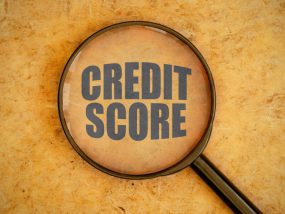
by Ajay Oberoi | Consumer Proposal, Credit Counseling, Credit Repair, Debt Management

While many people think that a credit score is just a buzz these days, the credit score, however, holds a significant value for many reasons.
A credit score tells a lot about a person to the most important individuals and institutions like;
- Insurance companies
- Banks
- Potential Employers
- Retailers and credit lenders
Hence, this simple score has the power to either make or break your credit reliability.
The power of a credit score
Many of us, if not all, must have had shared our credit scores with at least one of the above-mentioned parties. A credit score has the power to determine if you may or not get;
- Approved for mortgage
- A job offer
- Approved for a car loan
- Competitive rates of insurance
- A cell phone contract
- Line of credit, bank loan or a credit card
That’s right; a credit score tells interested people, how dependable you are in terms of finance. That is, a credit score is basically a true reflection of how properly you manage your finances and if you pay your bills in a timely manner or not. Therefore, these three digits from 300 to 900 may determine the options that you hold for the items, most valuable to your everyday life.
Good habits bring good credit score
The most important factor to make a good credit score is the repayment habits. Simply think where do you fall on the 1-9 scale when it comes to your debt repayments? The answer to this question will tell a lot about your current credit score.
It is important to review your credit score at least annually to know your financial standings. Moreover, do consider the power that your credit score has for the major events of life such as your child’s education, buying a car etc
Credit score comes with a number
No matter what kind of credit you have, the thing that matters is the number attached to that. This number, however, tells the people, who review your credit report, about your timely repayment structure. Mostly lenders rate an account by using number scale to know if you are paying to items as agreed to. This may include, repossession, collections, bad debt, payment made regularly via restructured plan of repayment and others.
How to calculate a credit score?
No matter what type of credit you have there is no exact formula to calculate it. There is no exact criteria that would determine accurately how much your score may increase or reduce, depending on your actions. However, with some general budgeting, money management, and debt repayment habits, you may help yourself to get a good credit score.
Following that, a credit score is important to build your trustworthiness and to open credit options for you in the future. A person with a bad credit score not only suffers from the current financial positioning but also closes the options for future as no lender would like to invest in doubtful circumstances. Therefore, follow the above-discussed steps to maintain a good credit score and to build more reliability amongst lenders.
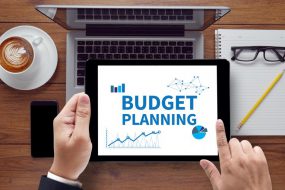
by admin | Consumer Proposal, Credit Counseling, Credit Repair, Debt Management

Remember the month, when you were barely able to make ends meet with your budget? We all agree that creating a monthly budget is necessary and helps us in many ways. However, this monthly budget may not save you from facing a month, when you would need extra money to pay your expenses. So what really puts a budget out of action?
While this may include the factors like heavy property bills, the heavy tax on water bills or some uncertain situations like poor health. With these variable expenses, sometimes, it becomes difficult to faithfully follow the budget. Hence the experts suggest that a good budget always keeps provision for these uncertain situations so that whenever any of such expense comes due, you got the money ready for them.
Still, this approach might not work for you as it would be difficult for you to take out money for uncertain or additional expenses from a monthly income, therefore; let us have a look at some other factors that might help you in making a good functional budget.
Writing down your income, expenses, and spending
The foremost step is to list down your income and expenses. This will help you in managing your money and tracking the spending behavior so that you may fulfill your goals. While it would be easy to list down the income that is expected to be received over time, it may be difficult to write down the expense, as it might require some close attention.
The track of spending may include every little item such as candy, coffee and cigarettes etc. The tracking should continue for at least a month or two as you pass every day at home, at play or at work.
Set appropriate saving goals
Considering what you want in your life, what dreams you want to achieve, you may like to set some short-term, medium-term or the long-term goals. The short-term goals may include saving up for some tour. A Medium term may include saving up for a car and the long term may include saving up for your retirement or your child’s education.
It is important to decide these goals with a realistic approach and once done, it’s time to figure out ways to attain them within the framework of our income and expenses. Since goals keep changing, you may also need to revise or re-evaluate your budgeting.
Make a saving plan
A habit of creating a budget itself opens up many options to make a proper saving plan. Since budgeting gives you a clear idea of personal spending, you may know always where you need to spend and where to save. However, if you are short on savings, your priority should be to start an emergency fund so that in the case of uncertain circumstances, your budgeting may not get disrupted.
By following the steps discussed above you may create a good budget for a month that would not only help you in saving some amount but would also help in dealing with uncertain realities.












